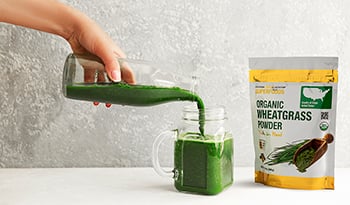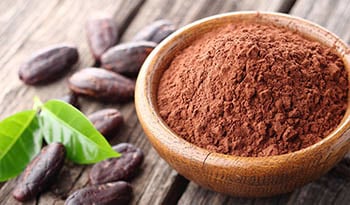The Health Risks of Alcohol and How to Protect Liver Function
DISCLAIMER:This blog does not intend to provide diagnosis...
- In this article:
- Moderate Alcohol Consumption and Mortality Rates
- Issues with Metabolizing Alcohol
- The Harmful Effects of Alcohol on Health
- How to Protect Liver Function

Many people want to believe that having a glass or two of red wine or other alcoholic beverages on a near-daily basis is good for their health. But is this a myth based upon bad science and marketing?
The idea that wine is a healthy food started in 1991 on an episode of the popular news show 60 Minutes in the United States. The segment brought up the idea that red wine consumption was responsible for the "French Paradox," which referred to the lower risk of death due to cardiovascular disease in the French population despite higher dietary cholesterol levels.
The hypothesis was that the presence of antioxidant polyphenols in wine, especially red wine, was responsible for the French Paradox. The compound resveratrol received a lot of credit, but the resveratrol content in a 5-oz glass of red wine ranges from only 0.03 to 1.07 mg, while in white wine, it ranges from 0.01-0.27 mg. Subsequent studies showed this very low level of resveratrol is not associated with any benefit in reducing cardiovascular, cancer, or all-cause mortality.1
Resveratrol is associated with various health benefits but is best obtained from supplements providing a dosage of 500 to 1,000 mg daily. It would take roughly 500 to 1,000 glasses of wine to give this amount of resveratrol.
There are other polyphenols with antioxidant properties in wine with potential cardiovascular benefits. However, the levels are far less than those from dietary and supplement sources with confirmed heart benefits.
The notion that wine was the responsible factor for the French Paradox is highly unlikely when dietary and lifestyle factors are considered. First, some population-based studies showed that drinking as little as one glass of wine per month was protective against cardiovascular disease. This amount is so small it is improbable that it is a responsible factor for any beneficial effects observed.2 The protective benefits are easily explained by other diet and lifestyle factors. For example, the Copenhagen Heart Study showed that those who drank wine also consumed twice as much daily vegetables and fruit.3
Lastly, many people place too much value on the role of wine as part of the Mediterranean diet, the most well-documented dietary strategy for promoting heart health. This diet is a rich source of health-promoting compounds, including polyphenols and other phytochemicals, even without wine consumption. The alcohol component provides no beneficial effect as it is a cellular toxin that stresses antioxidant mechanisms. Given the health risks with even moderate wine consumption, focusing on dietary and supplemental sources of heart-healthy compounds makes more sense than red wine.4
Moderate Alcohol Consumption and Mortality Rates
The American Heart Association and other medical organizations around the globe imply that drinking in moderation provides some health benefits, but newer data shows that it does not. In addition, the World Health Organization is quite clear that alcohol is a toxic substance responsible for much harm to health and society.
Among other things, alcohol consumption is associated with considerable toxic effects on the brain, liver, digestive system, heart, blood vessels, and immune system. Alcoholic beverages also increase the risk of several types of cancer and are classified as carcinogenic by the International Agency for Research on Cancer.
In looking at data on the impact of alcohol consumption and health, it is important first to define "moderate" alcohol consumption, generally referred to as the intake of 100 to 200 g of alcohol per week.
Let's take a look at reaching this level of intake with wine. One bottle of wine (750 ml) contains five glasses, with each glass providing 5 oz of wine, which is 12% alcohol. One glass would be the equivalent to 14 g of pure alcohol. The same is true with 12 oz of regular beer (5%) or 1.5 oz of distilled spirits at 40% alcohol.
Consuming 100 to 200 g of alcohol per week would translate to one or two alcoholic drinks per day. The big question is, does a weekly intake of 100 to 200 g of alcohol promote health or longevity? The answer is a strong no.
In fact, according to a detailed meta-analysis in the medical journal The Lancet, a weekly intake of 200 g of alcohol compared to 100 mg carries a loss of 1-2 years of life expectancy at the age of 40.5 In people under the age of 40, alcohol consumption at any level is associated with no health benefits at all and only harm.
Despite evidence to the contrary, where alcohol intake may show some health benefits is limited to people over forty years old who have "limited" consumption of alcohol. That translates to less than one glass of wine per week or longer. That is a much lower intake than one or two glasses of wine per day.
Issues with Metabolizing Alcohol
Alcohol is a cellular toxin, and how it is metabolized in the body gives rise to the potential of even more significant toxicity. When alcohol hits the liver, it is metabolized by an enzyme called alcohol dehydrogenase (ADH) into an even more toxic compound known as acetaldehyde, which is about 1,000 times more harmful than alcohol.
Acetaldehyde is mainly responsible for many of the harmful effects of alcohol consumption and the addictive process itself. Some people lack sufficient levels or activity of an enzyme known as acetaldehyde dehydrogenase (ALDH). These people are susceptible to more harmful effects of alcohol and alcohol dependence. The reason is that acetaldehyde is not being broken down properly. Typically, ALDH converts acetaldehyde to acetic acid and water.
ALDH deficiency causes "alcohol flush reaction," which reflects a person developing redness on the face, neck, shoulders, and in some cases, the entire body after consuming alcoholic beverages. It is also associated with an increased heart rate, nausea, and headaches.
ALDH deficiency is one of the most common inherited enzyme deficiencies. It affects about 35 to 40% of Asians and roughly 8% of the world population. People with this deficiency who regularly experience an alcohol flush reaction should avoid alcohol consumption altogether as they risk increased cellular harm.
The Harmful Effects of Alcohol on Health
On a cellular level, alcohol consumption has a deleterious effect at any dosage, but with increasing dosages, these effects become progressively more severe. Again, alcohol and acetaldehyde are direct cellular toxins.
Here are some other adverse effects of alcohol:
- Alcohol is a source of empty calories. Each alcohol-based drink contains approximately 100 to 150 calories. The body converts alcohol primarily into fatty acids.
- Alcohol consumption stresses blood sugar control and may produce reactive hypoglycemia (low blood sugar).
- Alcohol is a central nervous system depressant, which may result in low mood and energy levels.
- Alcohol interferes with energy (ATP) production producing easier fatigue and lack of endurance.
- Alcohol consumption on a regular basis produces a fatty infiltration of the liver and impaired liver function in almost all people.
- Alcohol use inhibits the absorption of nutrients or leads to nutrient depletion, especially in water-soluble vitamins such as B vitamins and minerals.
- Alcohol consumption cancels out many of the physiological benefits of physical exercise.
- Alcohol lowers immune function and impairs the body's ability to heal.
- Alcohol consumption can decrease the secretion of human growth hormone (HGH) by as much as 70 percent.
This list is only on the physiological effects of alcohol. The overall costs of alcohol and alcoholism on health care and society are immeasurable. Still, estimates are around 2.5% of developed countries' gross domestic product (GDP),6 which translates to roughly $525 billion for the United States.
How to Protect Liver Function
Central to protecting against the damaging effects of alcohol in those choosing to drink alcohol is to limit intake to no more than one serving of alcohol per day. A serving is defined as one 5-oz glass of wine, 12 oz of beer, or 1.5 oz of a distilled spirit per day at most. Anything above this level is likely to harm your health significantly.
It is essential to protect and support liver function if you drink alcohol, even at a low-moderate level and certainly at higher levels. Even moderate amounts of alcohol are enough to produce fatty liver infiltration. Since the liver is the main organ of metabolism and detoxification, this sign of damage and impaired function is quite significant.
Fatty liver disease is also prevalent in people who are overweight. Weight loss often produces a complete resolution of this sign of liver impairment.
The most important dietary guidelines for supporting good liver function include: avoiding refined sugar and flour products, drinking at least 48 ounces of water each day, and consuming plenty of vegetables, especially for their high water-soluble fiber content and rich supply of detoxifying enhancing phytochemicals.
Some specific foods are particularly helpful because they contain the nutrients and phytochemicals your body needs to produce and activate the dozens of enzymes involved in the various phases of detox. Such foods include:
- Garlic, legumes, onions, eggs, and other foods with a high sulfur content
- Good sources of water-soluble fibers, such as pears, oat bran, apples, and legumes
- Cabbage-family vegetables, especially broccoli, Brussels sprouts, and cabbage
- Artichokes, beets, carrots, dandelion greens, and many herbs and spices such as turmeric, cinnamon, and ginger
As far as supplements, here are some key recommendations:
Foundation Supplements for Overall Health
- High potency multiple vitamin and mineral formula: Alcohol interferes with the absorption and proper metabolism of most vitamins and minerals, especially vitamins A, B vitamins, magnesium, and zinc.
- Vitamin D3: Low vitamin D3 is common in most adults, especially those with liver impairment.
- Fish oil: Alcohol disrupts fatty acid metabolism. Supplying higher levels of omega-3 fatty acids may help improve the situation.
- Vitamin C: Alcohol consumption increases the need for vitamin C and other antioxidants.7
Additional Supplements for Liver Support
- Glutathione or N-acetylcysteine (NAC): 500 to 1,200 mg per day – Glutathione improves the breakdown of alcohol and acetaldehyde. It also is critical in protecting the liver from damage.8 NAC is converted in the body to glutathione.9
- Carnitine: Carnitine supplementation has shown significant beneficial effects in protecting against alcohol-induced fatty infiltration of the liver and improving liver function.10,11
- R-Alpha-lipoic Acid: This antioxidant protects liver cells and also increases the activity of ALDH to break down acetaldehyde.12
- Milk thistle extract: The most critical herbal support for protecting the liver against damage.13
- Soluble fiber (PGX®, apple pectin, guar gum, etc.): Dietary fiber is essential in supporting a healthy intestinal barrier and microbiome, thereby reducing the stress on the liver.
References:
- Semba RD, Ferrucci L, Bartali B, Urpí-Sarda M, Zamora-Ros R, Sun K, Cherubini A, Bandinelli S, Andres-Lacueva C. Resveratrol levels and all-cause mortality in older community-dwelling adults. JAMA Intern Med. 2014 Jul;174(7):1077-84.
- Lieber CS. Alcohol and health: a drink a day won't keep the doctor away. Cleve Clin J Med. 2003 Nov;70(11):945-6, 948, 951-3.
- Gronbaek M, Deis A, Sorensen TIA, Becker U, Schnohr P, Jensen G. Mortality associated with moderate intakes of wine, beer or spirits. BMJ 1995; 310:1165–1169.
- Santos-Buelga C, González-Manzano S, González-Paramás AM. Wine, Polyphenols, and Mediterranean Diets. What Else Is There to Say? Molecules. 2021 Sep 12;26(18):5537.
- BD 2020 Alcohol Collaborators. Population-level risks of alcohol consumption by amount, geography, age, sex, and year: a systematic analysis for the Global Burden of Disease Study 2020. Lancet. 2022 Jul 16;400(10347):185-235.
- Manthey J, Hassan SA, Carr S, Kilian C, Kuitunen-Paul S, Rehm J. What are the Economic Costs to Society Attributable to Alcohol Use? A Systematic Review and Modelling Study. Pharmacoeconomics. 2021 Jul;39(7):809-822.
- Lecomte E, Herbeth B, Pirollet P. Effect of alcohol consumption of blood antioxidant nutrients and oxidative stress indicators. Am J Clin Nutr 1994;60:255-261.
- Sacco R, Eggenhoffner R, Giacomelli L. Glutathione in the treatment of liver diseases: insights from clinical practice. Minerva Gastroenterol Dietol. 2016;62(4):316-324.
- Šalamon Š, Kramar B, Marolt TP, Poljšak B, Milisav I. Medical and Dietary Uses of N-Acetylcysteine. Antioxidants (Basel). 2019;8(5):111.
- Sachan DS, Rhew TH, Ruark RA. Ameliorating effects of carnitine and its precursors on alcohol-induced fatty liver. Am J Clin Nutr 1984;39:738-744.
- Li N, Zhao H. Role of Carnitine in Non-alcoholic Fatty Liver Disease and Other Related Diseases: An Update. Front Med (Lausanne). 2021 Aug 9;8:689042.
- Li RJ, Ji WQ, Pang JJ, Wang JL, Chen YG, Zhang Y. Alpha-lipoic acid ameliorates oxidative stress by increasing aldehyde dehydrogenase-2 activity in patients with acute coronary syndrome. Tohoku J Exp Med. 2013 Jan;229(1):45-51.
- Aghemo A, Alekseeva OP, Angelico F, et al. Role of silymarin as antioxidant in clinical management of chronic liver diseases: a narrative review. Ann Med. 2022 Dec;54(1):1548-1560.
- Chi X, Pan CQ, Liu S, Cheng D, Cao Z, Xing H. Regulating Intestinal Microbiota in the Prevention and Treatment of Alcohol-Related Liver Disease. Can J Gastroenterol Hepatol. 2020 Dec 17;2020:6629196.

 By Dr. Michael Murray, N.D.
By Dr. Michael Murray, N.D. 


